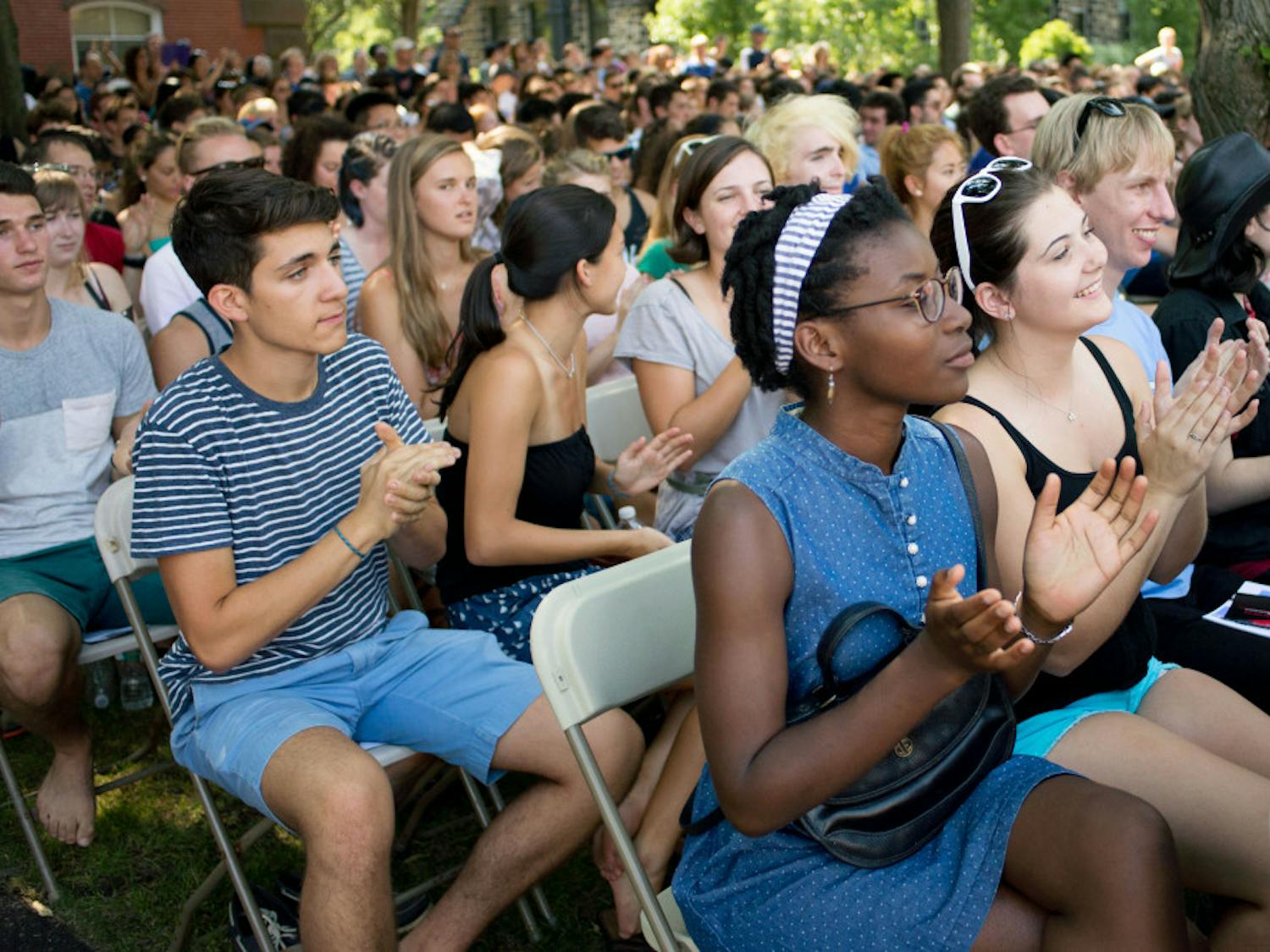Multimedia
June 6
It survived the advent of the telegraph. The radio. The television.
But the boom of digital media threatens to put an end to the print industry as we know it — an industry that has recorded every major event in this country over the last 200-plus years.
From New York to Seattle, from Boston to Los Angeles, the news is the same: Print journalism is crumbling to pieces.
The only question remaining is who will be left to cover this mammoth event.
The industry has been struggling financially for some time now; the rise of digital media has threatened the business model of the print industry as, increasingly, people have opted to cancel their daily subscriptions in favor of free access to newspaper Web sites and blogs.
But the industry's decline has been exacerbated by the current economic crisis — and recently, this news has hit close to home.
During the last several months, the news in Boston has become grim: The New York Times Co. might shut down The Boston Globe, a staple of Boston-area news since 1872. And over the last few weeks, the situation became so dire as to culminate in a stare-down between the Boston Newspaper Guild and the Times Co.
For years, the Globe has been considered a premier newspaper in this country, and even just a decade ago, the events of the last few weeks would have seemed unrealistic at best, ludicrous at worst.
The numbers are real, however: Company executives say the paper lost $50 million in 2008, and if things continue down the same path, it will lose another $85 million in 2009 on less than $500 million in revenue.
This is the age we are now faced with — one in which blogs seem to double in number every day and our poor newspaper industry seems destined for our history books, a mere relic of the past.
Yet this does not take away from the general regret we feel as student journalists for our lost art form and, more specifically, for the potential loss of the Globe.
The idea of the paper closing is not only sad for nostalgic reasons but also for its potential effect on politics in Boston and the industry as a whole.
In an April 4 article published in the Globe, Boston Mayor Thomas Menino reflected on the crucial role the newspaper has so long played in Boston politics. "The Globe holds people accountable on the issues, and that's important," he said. "We might not like it sometimes. Sometimes we don't agree. But they ask the tough questions."
It is likely that the "Globe" name will survive the storm — perhaps the Times Co. will be able to sell it for a fraction of the record $1.1 billion it paid for the paper in 1993 — but gone are the days of a Boston newspaper with a world-class international and national bureau. Gone are the days when Boston-area residents wake up to find a copy of the paper nestled on their doormats. Gone are the days when New Englanders will look solely to the newspaper for answers, analysis and commentary on all things Boston.
There's just too much competition. People just don't pick up hard copies of the newspaper anymore.
On weekdays, the Globe has a paid circulation of 303,000 — 466,000 on Sundays — which ranks it 17th and 13th, respectively, in those categories nationally. Yet subscriptions have been slashed by a third since 2000. And while the paper's newsroom employs some 340 people, that is a far cry from the 500 it employed at the beginning of the decade.
The New York Times Co. is feeling the pinch, reporting an astronomical loss of $57.8 million in 2008 and $74.5 million in the first quarter of 2009.
So where does this put us — those aspiring journalists who grew up hearing stories of Woodward and Bernstein and who, one day, dreamed of seeing our bylines above the fold on the front page of The New York Times?
For starters, it puts us out of jobs, along with the rest of today's graduating senior class.
But in the future, perhaps it will enable us to be innovators of a new breed of journalism. Print copies of publications may cease to exist, but there will always remain a place for journalists in our society — people who can continue to ask the "tough questions," report the major events of the day and hold our government accountable.
In 1823, Thomas Jefferson told John Adams, "The light which has been shed on mankind by the art of printing has eminently changed the condition of the world … And while printing is preserved, it can no more recede than the sun return on its course."
While the sun may actually be setting on the printing press, we have new forms of communication that are on the rise, altering journalism in ways that just two decades ago could have never been imagined.
There will always be a place for journalists — they just may not operate in the traditional manner. And perhaps that's a good thing. Perhaps future journalists will be challenged to look at stories in new ways, with multiple audiences in mind.
Jefferson also famously said, "A press that is free to investigate and criticize the government is absolutely essential in a nation that practices self-government." The country looks a lot different than it did in the early 19th century, but one thing has not changed: There will always be a place for good journalism in this country.







